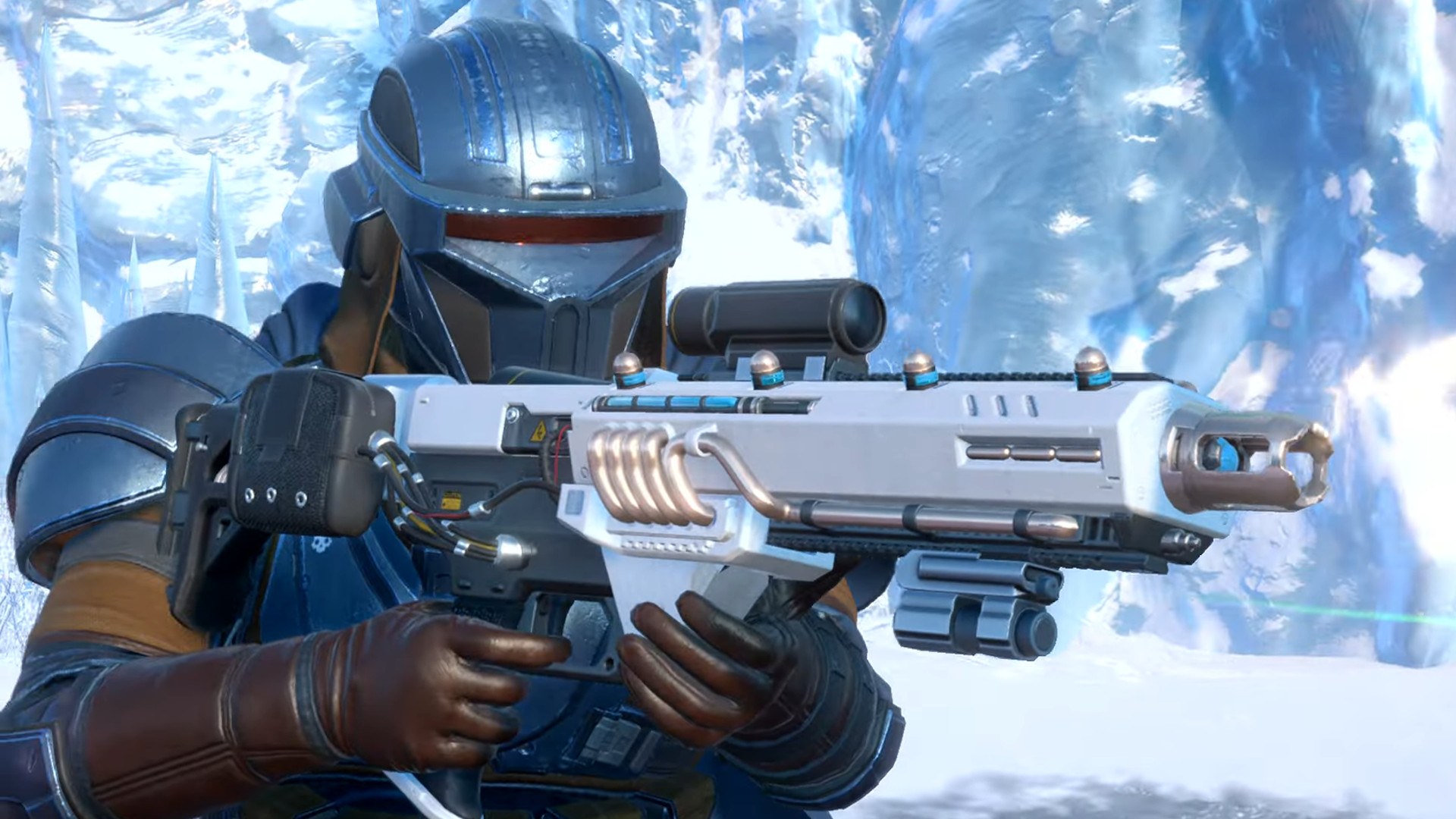Why was Helldivers 2 a smash hit? Not the price, says Pilestedt
Also, live service games shouldn't nickel and dime the player.

Helldivers 2 is a successful videogame by pretty much every measure, but what makes it so? Given the risk-laden rush towards lucrative live service games—and the seeming huge amounts of luck required for them to catch on—it's likely a question many in the industry are asking. Speaking at the Nordic Game conference earlier this week, Arrowhead Games CEO Johan Pilestedt offered up his own thoughts on why Helldivers was a smash hit.
He's quick to shoot down the oft-repeated theory that it's the co-op shooter's $40 price point that made all the difference. As he rightfully notes, there are many games that sell for $40, and not many have the same success that Helldivers 2 has had. There are a whole lot of other factors people point to, such as the release window, the balance, the "content cadence" and more, but Pilestedt thinks it's a combination of more abstract factors that contributed to Helldivers 2's success.
These include nailing the fundamentals. "A lot of people have made alien shooters before, but what we did differently was that we dug into the believability. People say that Helldivers is the most cinematic game they've played, which is strange, because we don't even have a cinematic in the game. It all happens based on us trying to force the fantasy to play out like an action movie."
The fundamentals also include authenticity, and whether a game adheres to the audience's general vibe regarding how a fantasy should play out: "[In] Star Wars, how many strikes does it take to cut someone's hand off with a lightsaber?" Pilestedt asks. "It's one, and it's fundamental to adhere to the fantasy. Fine, balance it, but don't make it two strikes, because I know that's false, and now we're not making a Star Wars game anymore."
Another overarching factor, according to Pilestedt, is the "style", which doesn't allude to the style of the game so much as the style of its creation, and the people involved in making it. "The style comes from the studio mentality and philosophy, and this is deeper: it's why decisions are made at every level of an organisation. In a single day of an organisation of a hundred, there's probably a thousand decisions being made. If you try to solve it by saying 'this one decision was the thing that made [Helldivers' success] happen' well, that can't be true."
The big question is its success as a live service. "We ask ourselves what right do live service games have to exist in the games industry as products?" Pilestedt said. "It's easy to say, well, we'll earn more money by being able to drop a content pack here and there. But that's not a reason why any consumer would want to engage with us. The reason live service is a good thing for the games industry, if done right, is that it's a continuous hobby that evolves and allows players to get more of the games that they love, and if you forget this when making a live service game, then—I don't want to say it's a problem—but it's a problem. I've decided it's a problem, it's a massive problem."
And while price point is not the answer, it is a little bit of the answer, at least concerning Helldivers 2's live service trappings. "If you want to have monetisation in the game, if you think that people buying new stuff in the game—it's a fair assumption, a lot of products work like that, Magic: The Gathering, Warhammer etc, all work by additional purchases—but don't charge $70 upfront and then nickel and dime people for skins. It's just wrong; be kind to users, and do live service right by asking yourself what is good for the gamers in this game being live service rather than what is good for the bank account."
The biggest gaming news, reviews and hardware deals
Keep up to date with the most important stories and the best deals, as picked by the PC Gamer team.
The full presentation can be viewed on the Nordic Game YouTube account. In other Pilestedt news, he wants to make Arrowhead the next FromSoftware or Blizzard.

Shaun Prescott is the Australian editor of PC Gamer. With over ten years experience covering the games industry, his work has appeared on GamesRadar+, TechRadar, The Guardian, PLAY Magazine, the Sydney Morning Herald, and more. Specific interests include indie games, obscure Metroidvanias, speedrunning, experimental games and FPSs. He thinks Lulu by Metallica and Lou Reed is an all-time classic that will receive its due critical reappraisal one day.

